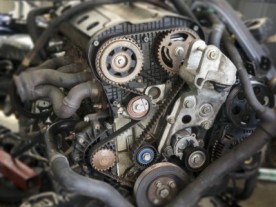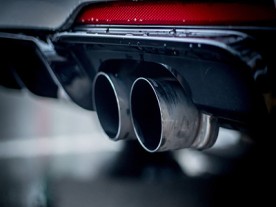When a car's exhaust pipe emits thick, dark smoke, it is often an alarming sight for both drivers and onlookers. Understanding the underlying causes of black smoke can help diagnose and address potential issues with the vehicle's engine or emission system. This article aims to explore the common reasons behind black smoke from a car's exhaust.

Fuel-related Issues:
a) Rich Air-Fuel Mixture: An excessively rich air-fuel mixture can result in black smoke. This occurs when there is more fuel supplied to the combustion chamber than required, leading to incomplete combustion and the production of soot particles.
b) Clogged Fuel Injectors: Over time, fuel injectors can become clogged or dirty, disrupting the optimal fuel spray pattern. This can lead to improper combustion and the generation of black smoke.
Engine Problems:
a) Faulty or Worn-out Components: Malfunctioning engine components like the piston rings, valves, or cylinder walls can allow oil to enter the combustion chamber. The burning of oil produces black smoke as a byproduct.
b) Turbocharger Issues: A malfunctioning or worn-out turbocharger can cause excessive oil consumption, leading to black smoke emissions.
Emission System Faults:
a) Blocked Air Filters: Dirty or blocked air filters restrict the airflow into the engine, resulting in an imbalanced air-fuel mixture and black smoke.
b) Faulty EGR (Exhaust Gas Recirculation) System: If the EGR system fails to function correctly, unburned fuel may not be properly recirculated and can contribute to black smoke emissions.
Black smoke from a car's exhaust can indicate various underlying issues, primarily related to fuel, engine, or emission system problems. It is crucial to identify the specific cause and promptly address the necessary repairs or maintenance to ensure optimal vehicle performance, reduce environmental impact, and improve overall fuel efficiency. Consulting a qualified mechanic or automotive professional is recommended for accurate diagnosis and appropriate solutions to resolve this issue effectively.








